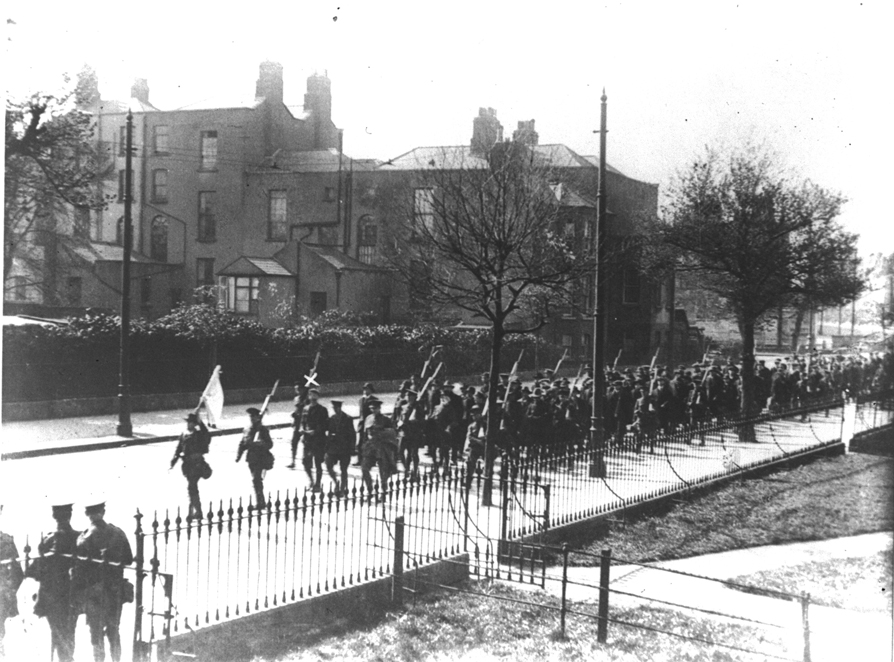Pleas of clemency flood in for rebel leaders
Cork, 11 May 1916 - Calls for an end to the executions of those involved in the rebellion at Easter in Dublin continue to mount.
Many Irish public bodies have passed motions calling for an end to the repressive response to the Rising. Daniel Colohan, the Assistant Bishop of Cork, has led a group of citizens in sending a telegram to the British Prime Minister Herbert Asquith and the leader of the Irish Parliamentary Party John Redmond.
The telegram claimed to voice the opinion of the great majority of the citizens of Cork, in its ‘desire to protest most strongly against any further shootings as the result of court martial trials, and against indiscriminate arrests throughout the country. We are strongly of the view that such shootings and arrests are having a most injurious effect on the feelings of the Irish people, and if persisted in may be extremely prejudicial to the peace and future harmony of Ireland, and seriously imperil the future friendly relations between Ireland and England.’
Also in Cork, the city’s Corporation has passed a motion to express its belief that 'Ireland's salvation lies in adherence to the constitutional movement, and asked for the suspension of martial law, holding that if any further executions and indiscriminate arrests would only embitter public opinion'.
[Editor's note: This is an article from Century Ireland, a fortnightly online newspaper, written from the perspective of a journalist 100 years ago, based on news reports of the time.]





















